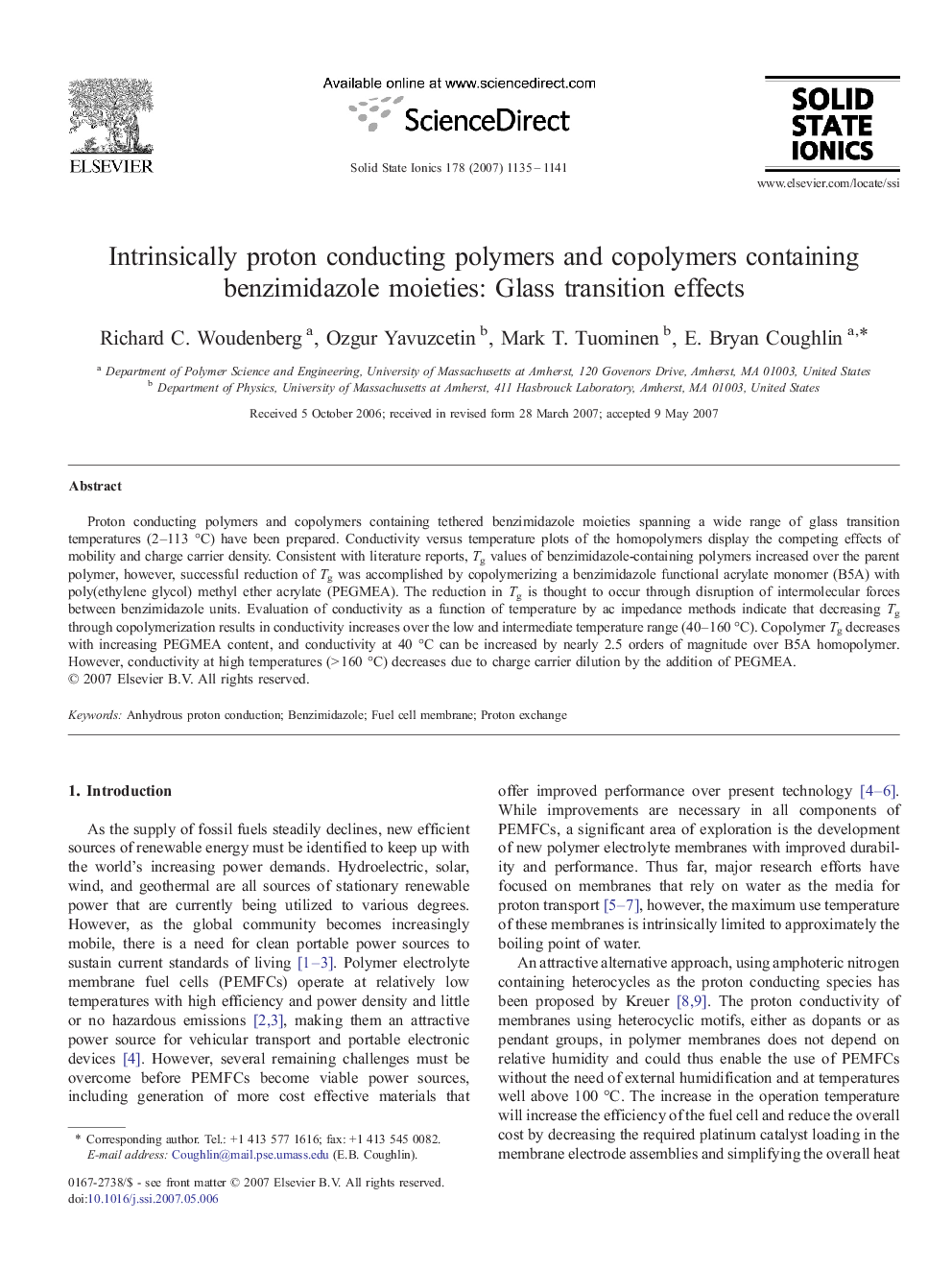| Article ID | Journal | Published Year | Pages | File Type |
|---|---|---|---|---|
| 1298287 | Solid State Ionics | 2007 | 7 Pages |
Proton conducting polymers and copolymers containing tethered benzimidazole moieties spanning a wide range of glass transition temperatures (2–113 °C) have been prepared. Conductivity versus temperature plots of the homopolymers display the competing effects of mobility and charge carrier density. Consistent with literature reports, Tg values of benzimidazole-containing polymers increased over the parent polymer, however, successful reduction of Tg was accomplished by copolymerizing a benzimidazole functional acrylate monomer (B5A) with poly(ethylene glycol) methyl ether acrylate (PEGMEA). The reduction in Tg is thought to occur through disruption of intermolecular forces between benzimidazole units. Evaluation of conductivity as a function of temperature by ac impedance methods indicate that decreasing Tg through copolymerization results in conductivity increases over the low and intermediate temperature range (40–160 °C). Copolymer Tg decreases with increasing PEGMEA content, and conductivity at 40 °C can be increased by nearly 2.5 orders of magnitude over B5A homopolymer. However, conductivity at high temperatures (> 160 °C) decreases due to charge carrier dilution by the addition of PEGMEA.
